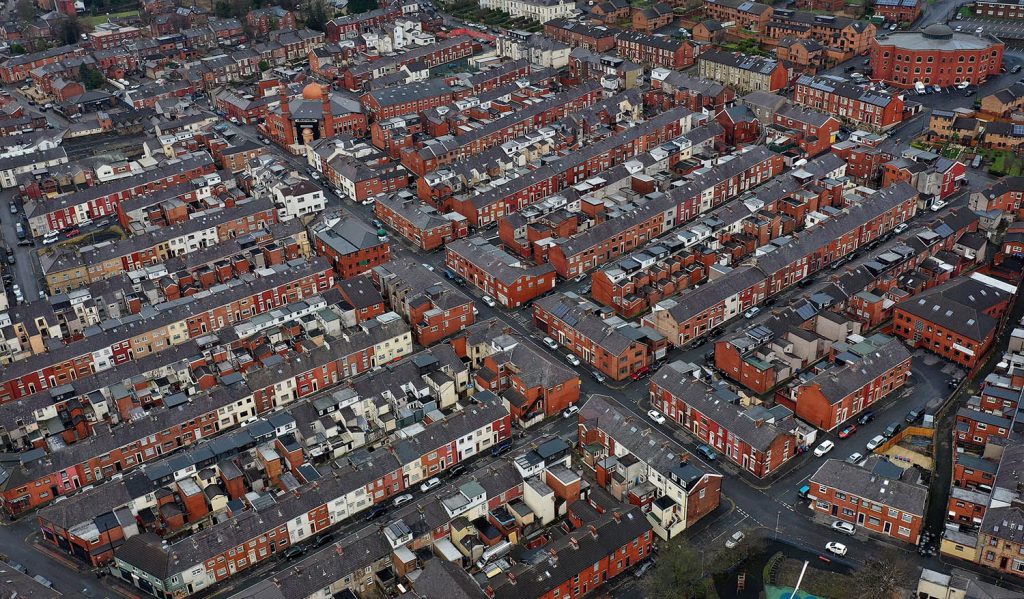What just happened

- Germany delivered its first Iris-T air defence system to Ukraine.
- Alex Jones, the conspiracist, was told to pay $965 million to families of victims of the Sandy Hook massacre.
- Mo Salah scored the fastest hat-trick in Champions League history to help Liverpool beat Rangers 7-1.
That muffled screaming sound is the one that starts at the top of the rollercoaster, before the drop. It’s the sound of
- estate agents begging solicitors to hold their chains together;
- first-time buyers clinging to the mortgage they can afford before their lender pulls it off the market;
- the super-prime broker watching inflation and the tumbling pound wipe £20 million off the value of a £55 million Mayfair mansion; and
- asset managers offloading property fund holdings in case the market really tanks.
Average UK house prices rose by two-thirds in the past decade and 15 per cent in the past year, in a colossal transfer of wealth from future taxpayers to present homeowners largely via the miracle of quantitative easing – of printing money.
The result is an average house that cost 2.8 times average earnings in the 1990s costs 6.4 times average earnings now.
Party’s over. House prices are now due a 10-15 per cent fall in the next year, depending on your forecaster. Adjusted for inflation nudging 10 per cent and mortgage rates rising to 5 or 6, that could equate in some areas to a real-terms price crash of up to 25 per cent.
Cause. Rising inflation and bank rates (the latter now going up four times faster than during the 2008 financial crisis) have hit the affordability and availability of mortgages, and thus demand for property.
- The number of new homebuyers fell last month for the fifth month in a row, according to the Royal Institute of Chartered Surveyors’ latest monthly survey out today.
- The number looking for new-builds is at its lowest in three years.
- Weekly reservations for new homes from Barratt, the UK’s biggest builder, are a third lower than last year, and share prices across the sector are down by at least half.

Effect. There should be a pick-up in demand as prices fall, but in the meantime 2.4 million of the 8.4 million UK homeowners with mortgages will come to the end of fixed-rate products by the end of next year. Assuming rates are at or near 6 per cent as these borrowers seek out new lenders, the WSJ says the impact on affordability will mean the biggest shock to the housing market since the crash.
The caveats. Two cohorts at opposite ends of the income scale will be partially protected from rate rises:
- Young people. Only 28 per cent of UK households have mortgages compared with more than 40 per cent in the 1990s because fewer young workers can afford them.
- Old Tories. Two thirds of them have no mortgage at all, Bloomberg reports. They own their properties outright.

But Labour reckons monthly payments for a typical family with a £217,000 loan will go up by about £500 when they remortgage, and Full Fact can’t find much fault with the arithmetic. Another way of looking at the same squeeze: the average share of net monthly income going on mortgage payments will jump from under 35 to over 45 per cent for borrowers switching from 2.5 to 6 per cent.
And there’s more. Base rate rises are playing havoc with property funds and real estate investment trusts:
- On Tuesday Columbia Threadneedle, the asset manager, closed a £453 million fund to new redemptions (withdrawals), partly as a result of pension managers dumping holdings to raise cash.
- Yesterday Oli Creasey, an analyst at Quilter Cheviot, said industrial property was the main sub-sector affected so far “but if base rates go on up the impact is going to be felt everywhere” including office space, hotels and residential property.
- Today and beyond, contagion causing other funds to close to redemptions is “definitely possible”, Creasey says. Columbia Threadneedle had a cash cushion of only 3 per cent while most property funds have more like 15 – “but we don’t know how deep investors are going to go in terms of getting their money back”.
For his own part, Creasey isn’t cashing out of property funds completely. He wants to be there when the market bottoms out because that’s when “the magic comes”. Who said rollercoasters weren’t fun?











